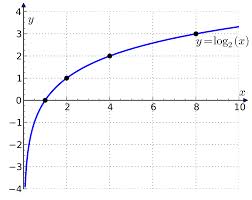logarithm
英 [ˈlɒɡ.ə.rɪ.ðəm]
美 [ˈlɑː.ɡə.rɪ.ðəm]
- n. [数] 对数
星级词汇:

记忆方法
将“logarithm”分解为“log”和“arithmet”(与“arithmetic”相似)。想象一个“log”(树干)上记录着“arithmetical”(算术的)步骤或数字,这样就形象地记住了这个单词的含义——对数。
以上内容由AI生成, 仅供参考和借鉴
中文词源
logarithm 对数
来自拉丁语logarithmus,由苏格兰数学家John Napier于1610年造出来的一个词,来自logos,词,思考,比例,词源同logic,arithmos,数字,词源同arithmetic.
英语词源
- logarithm
-
logarithm: [17] Greek lógos had a remarkably wide spread of meanings, ranging from ‘speech, saying’ to ‘reason, reckoning, calculation’, and ‘ratio’. The more ‘verbal’ end of its spectrum has given English the suffixes -logue and -logy (as in dialogue, tautology, etc), while the ‘reasoning’ component has contributed logic [14] (from the Greek derivative logiké), logistic [17] (from the Greek derivative logistikós ‘of calculation’), and logarithm, coined in the early 17th century by the English mathematician John Napier from Greek logós ‘ratio’ and arithmós ‘number’ (source of English arithmetic [13]).
=> arithmetic, logic, logistic - logarithm (n.)
- 1610s, Modern Latin logarithmus, coined by Scottish mathematician John Napier (1550-1617), literally "ratio-number," from Greek logos "proportion, ratio, word" (see logos) + arithmos "number" (see arithmetic).
权威例句
- 1. The natural logarithm of this ratio is called the logarithmic decrement.
- 此比率自然对数称为对数的减量.
- 2. The characteristic of the logarithm 6.3214 is 6.
- 对数6.3214的首数是6.
- 3. His first designs were for a machine to calculate such things as logarithm tables.
- 他的最初设计是为机器计算诸如对数表之类的事情.
- 4. Returns the logarithm of a specified number in a specified base.
- 返回指定数字在使用指定底时的对数.
- 5. The fifth day is the logarithm stage for the mycelium growth.
- 菌丝体生长的第五天为菌丝对数生长阶段.
